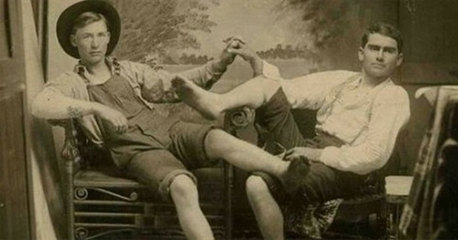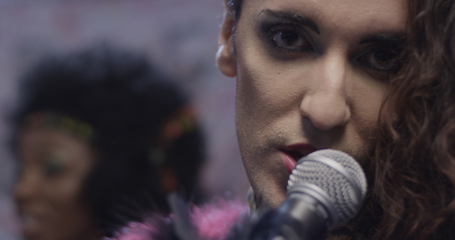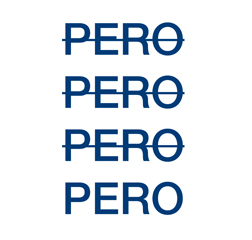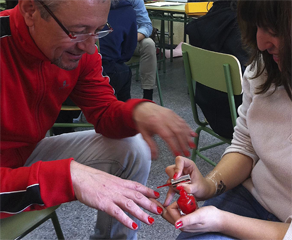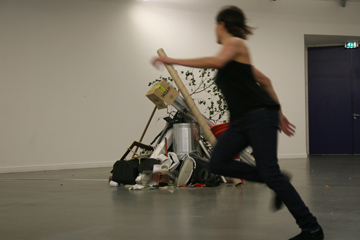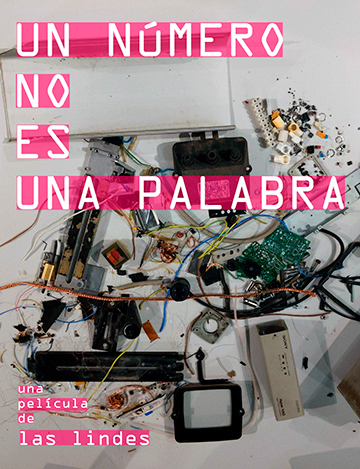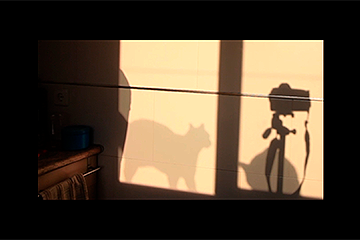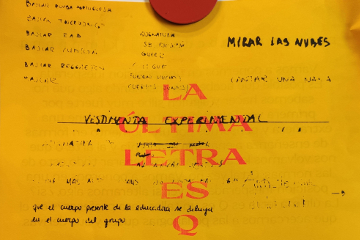The dance technique of Contact Improvisationwas introduced during the seventies and then began to spread worldwide in the following decade of the eighties. It was created by Steve Paxton who wanted to fly but, logically, knew that the first thing was to learn how to fall together with other bodies, and to this end he started to combine principles of dance with gymnastics and martial arts like Aikido.
The basic principle of this technique is for the dancers to maintain a physical point of contact with each other, sharing their centre of gravity, rejecting verticality and individuality in order to enter into a kind of co-existence, a communion based on trust and the will to discover new patterns of movement.
In this workshop Aimar Pérez Galí will introduce the basics of Contact Improvisationto help rethink strategies that will aid us in developing pedagogical tools. Taking this practice as an example of the politics of caring, we can open up new fields of exploration around the body, its uses, its connotations and its implications on a social, political and cultural level.
Aimed at teachers and all those interested in education.No prior experience is necessary, but participants should dress comfortably and be willing to explore, sweat and touch, and to share weight and minds
Enrolment free until 23 June.Download form, fill it in and return it to educacion.ca2m@madrid.org Participants will be confirmed on 27 June
The dance technique of Contact Improvisationwas introduced during the seventies and then began to spread worldwide in the following decade of the eighties.
